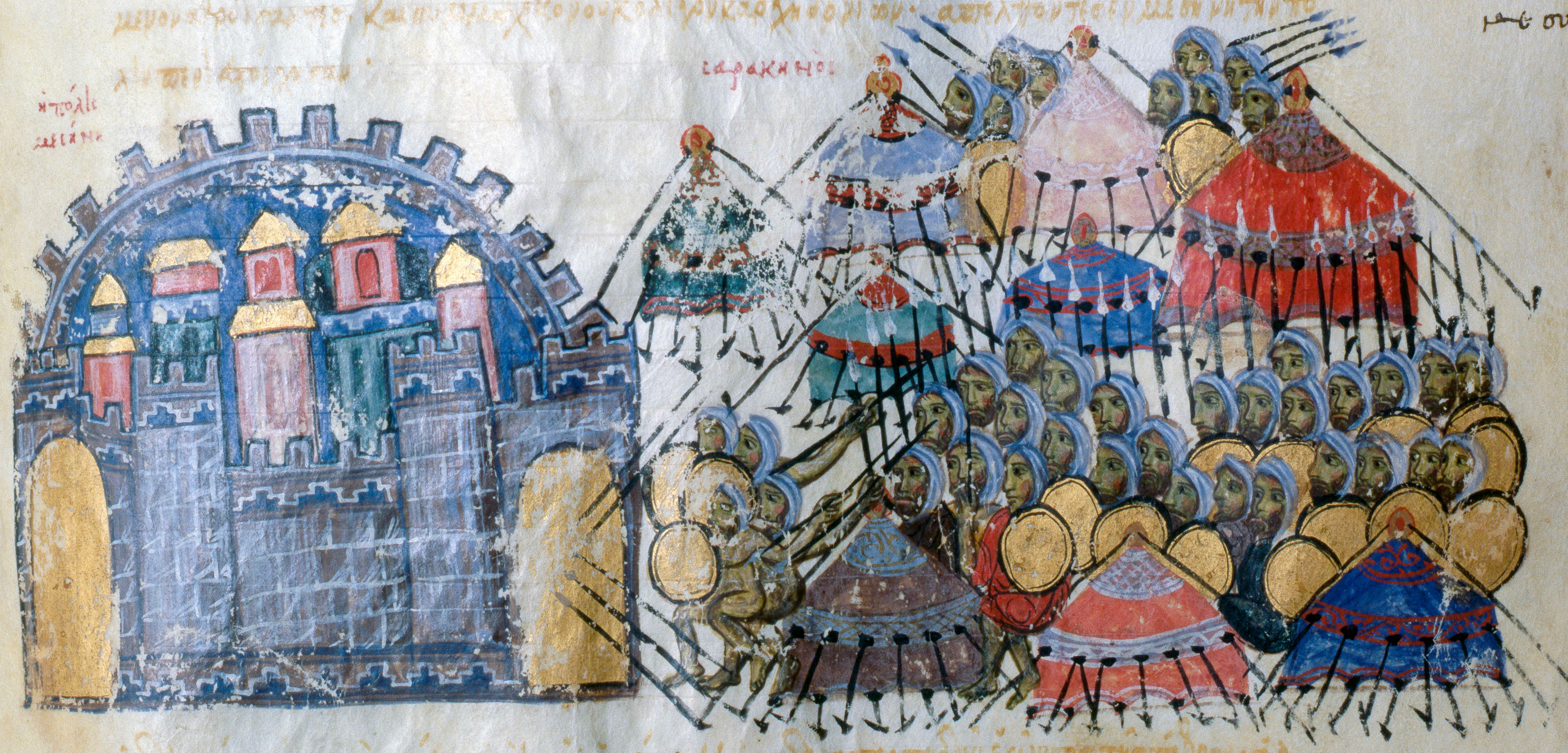You are using an out of date browser. It may not display this or other websites correctly.
You should upgrade or use an alternative browser.
You should upgrade or use an alternative browser.
The Southern Roman Empire.
- Thread starter Filo
- Start date
The Southern Roman Army
In the late 9th century, the Zyride dynasty
assumed power over the Roman Empire. The desert Berbers became one of the main forces of the empire mainly as light cavalry and as Royal Guards (Excubitores).
However, Berber fashion also crept into popular and military fashion.
Pictured is a legionnaire from the forces stationed in Iberia during the Betic War around the year of the Vulgar Era 950.
The Rise of the Zirid Dynasty

The Rise of the Zirid Dynasty - Egyptian army besiege Leptis Major, ca. Code Graecus C, Historia Romanorum. Teophane the Confessor.
The 9th century of the Christian era saw a serious weakening of Roman imperial authority. Not only in Italy and Iberia, where local lords de facto became autonomous from imperial authority or provinces were threatened by a reborn Visigoth nationalism, but even in the very heart of the empire, Africa.[1]
With the imperial court divided over the issue of Emperor Leo's marriage and the imperial armies more committed to war with each other than against their enemies, the empire's enemies had grown more arrogant.
The Persians [Egyptians, but Persianised] under the leadership of a new ruler Oubous [Ubayd Allah, but translated into Latin, from Coptic], marched to Leptis and laid siege to it, conquering it after six months.
The Persians said that this ruler of theirs, Oubous was an apostle sent by God to revive faith in Jesus and that he had received the support of the Prophets on Mount Tabor. This was a lie, but many Ishmaelites had believed in him, whom they considered the reincarnation of their God, Alus [2] and had followed him by increasing the number of his soldiers.
In Africa, the situation was dire, forced to move numerous armed forces to Italy and Spain, the Romans were also depleted on the desert front. The rich trade routes, which led to the cities of gold, were interrupted by Maurian bandits and brigands, and further south, the King of Vagatus[3] had not only stopped sending tribute to Syracuse, but also boasted that he was "An Emperor, like the Roman one."[3]
The armies of the Vagatus moved up the desert, gradually conquering the military bases of the empire.
In Numidia and Africa, as we said, left to itself, two great families of Maurian auxiliaries vied for power. One, based in Vicus Castrorum, was that of the Ziridi, hemmed in by a Maurian commander, Ziridus, who had served under Leo. The other was based in Icosium. These two powerful and arrogant Maurean houses vied for power with private armies.[4]
[1] Conca, but I have not yet decided on the sequence of Roman emperors. Should it change it will obviously be a textual error 🙂 [2] Ali, of course.
[2] Ali, of course.
[3] Ghana seems to be an Arabic-derived name (see Tahar). Therefore the choice that seemed most logical to me is to Latinise the native name of Wagadu, into Vagadus.
[4] Lapidus
Share: